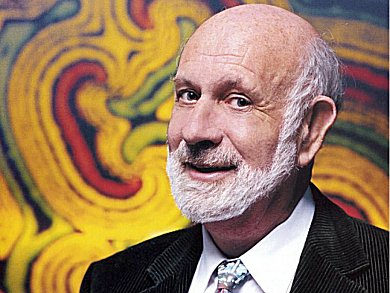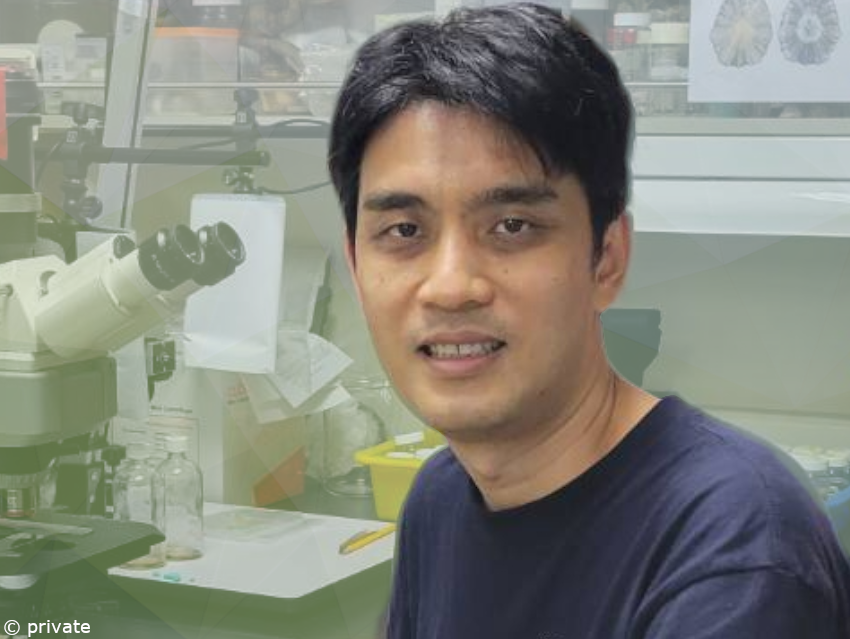Professor Benny Kwok-Kan Chan, Academia Sinica, Taiwan, has received the Mario Markus Prize for Ludic Sciences from the German Chemical Society (GDCh). Awarded on January 14 at Physikalischer Verein (Physical Society) in Frankfurt, Germany, the €10,000 prize recognizes his discovery that some barnacles, traditionally thought to be immobile, can move by dissolving and reapplying their adhesive proteins.
The award honors scientific work in the field of natural sciences that is characterized by its playful character and celebrates scientific curiosity. The prize is financed by Professor Mario Markus, Dortmund, Germany, who dedicated himself to ludic science and coined this term.
Benny Kwok-Kan Chan and his team studied the mobility of barnacles that live on turtles. Traditionally, barnacles were believed to remain firmly attached and immobile on their surfaces. However, Chan’s research showed that these barnacles can dissolve their adhesive proteins—known as cement proteins, which anchor them—and glide to new positions before reattaching themselves.
The team also discovered that both larval and adult barnacles produce specialized cement proteins tailored to different life stages and functions. Interestingly, while adult barnacles in similar habitats share comparable sets of cement proteins, the number and variety of specific protein versions can vary. This diversity allows barnacles to adapt to a wide range of environments. Although Chan’s research is playfully inspired, it holds practical potential, such as advancing the development of strong, versatile adhesives for underwater applications.
Benny Kwok-Kan Chan studied Environmental Sciences at the University of Hong Kong and gained his Ph.D. in Marine Ecology there in 2000. He became a postdoctoral fellow and later an assistant professor in marine ecology at the same institution. In 2005, he joined the Biodiversity Research Center (BRC) at Academia Sinica, Taiwan, where he now serves as Director and Research Fellow in Marine Ecology.
Chan’s research focuses on barnacles and their coastal habitats to study the diversity, phylogeography, ecology, and evolution of Indo-Pacific marine fauna, spanning from genes and molecules to ecosystems.
Reference
[1] Benny K. K. Chan, Yue Him Wong†, Nathan J. Robinson, Jr-Chi Lin, Sing-Pei Yu, Niklas Dreyer, I-Jiung Cheng, Jens T. Høeg, John D. Zardus, Five hundred million years to mobility: directed locomotion and its ecological function in a turtle barnacle, Proc. R. Soc. B. 2021. https://doi.org/10.1098/rspb.2021.1620
Selected Publications by Benny Kwok-Kan Chan
- Comparative genomics reveals the dynamic evolutionary history of cement protein genes of barnacles from intertidal to deep-sea hydrothermal vents,
Won-Kyung Lee, Benny K. K. Chan, Jae-Yoon Kim, Se-Jong Ju, Se-Joo Kim,
Molecular Ecology Resources 2023.
https://doi.org/10.1111/1755-0998.13895 - Phylogeography of the intertidal barnacle Chthamalus barnesi in the northwestern Indian Ocean,
Adnan Shahdadi, Zeinab Azan, Benny K. K. Chan,
Marine Ecology Progress 2024, 726, 99-112.
https://doi.org/10.3354/meps14477 - A draft genome assembly of reef-building octocoral Heliopora coerulea,
Jack Chi-Ho Ip, Ming-Hay Ho, Benny K. K. Chan & Jian-Wen Qiu,
Scientific Data 2023, 10, 381.
https://doi.org/10.1038/s41597-023-02291-z - Autochthony and isotopic niches of benthic fauna at shallow-water hydrothermal vents,
Teng-Wei Wang, Danny C. P. Lau, Tin-Yam Chan & Benny K. K. Chan,
Scientific Reports 2022,12, 6248.
https://doi.org/10.1038/s41598-022-09839-w
Also of Interest

Researcher from the University of Strathclyde, Glasgow, UK, and the Technical University of Dresden, Germany, honored for scientific work with a playful character

Johann Ostmeyer, Christoph Schürmann, and Carsten Urbach honored for scientific work with a playful character

Professor Mario Markus, scientist, artist, author, and poet, talks about what science can offer to art and how art can benefit science




